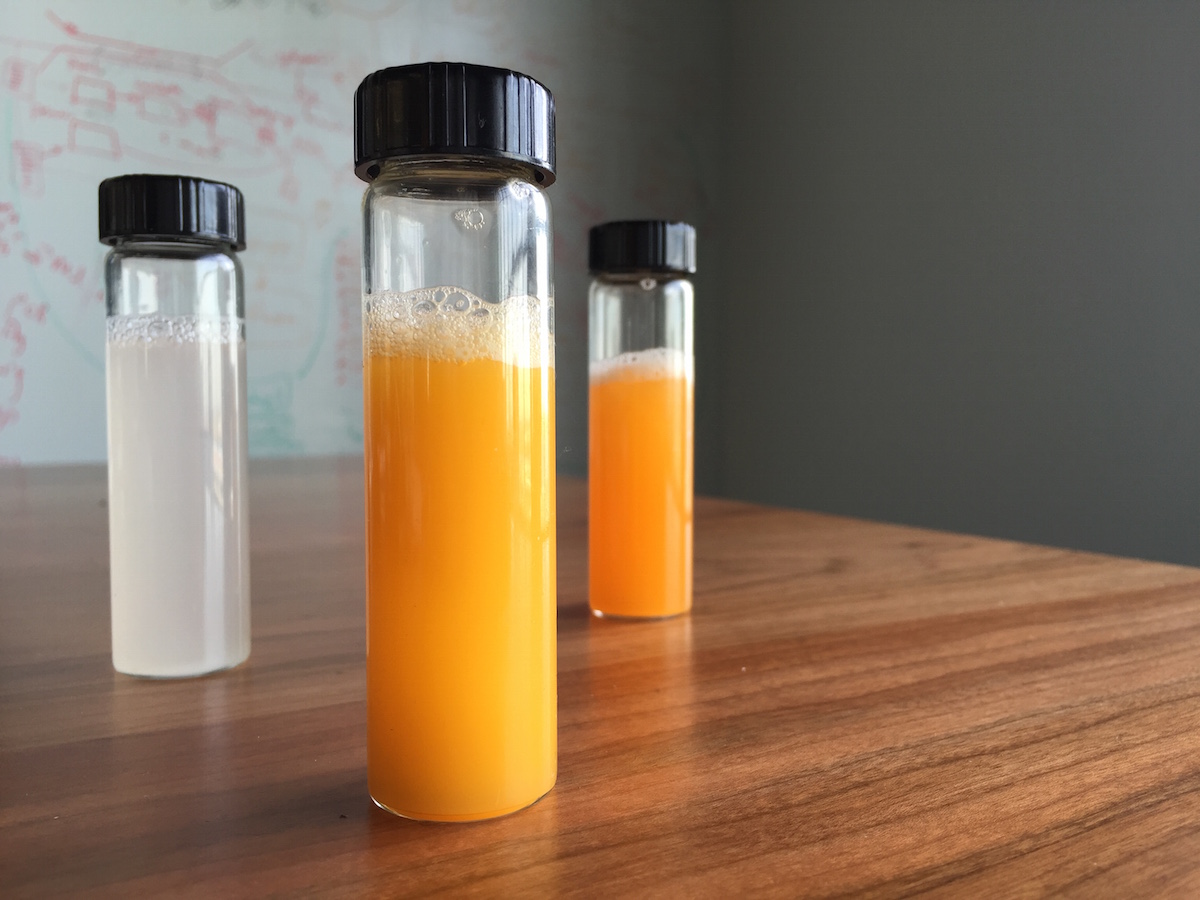A Local Company Is Making New Scents and Flavors from Yeast

Ginkgo Bioworks photo provided to bostonmagazine.com.
The creative process behind perfume scents might conjure images of elaborate potions in beakers and test tubes. But the main ingredient behind Ginkgo Bioworks‘ bespoke scents and flavors sounds quite a bit less glamorous: yeast.
“We can engineer yeasts to produce scents using the same genes and enzymes that plants use,” says Christina Agapakis, Ginkgo’s creative director. “There are already a few cultured ingredients being used in designer fragrances.”
Ginkgo has made engineering biology its business, splicing genes to mimic the biological processes of natural organisms—most often flowers, trees, and other plants—and produce specific flavors and scents for commercial use. “The idea isn’t to replace traditional methods of growing fragrance ingredients, but to supplement them with cultured ingredients that can expand the palette available to perfumers,” Agapakis says.
Beyond perfume, Ginkgo’s emerging field may open doors for the culinary and cosmetic industries, by supplying fresh, sustainable flavors that can be tricky to generate using chemistry alone. The company also works in the biotechnology arena, manufacturing molecules that could help tackle issues like antibiotic resistance.
“Some of the most exciting projects I get to work on are our creative partnerships with flavor scientists creating new fermented foods, industrial designers thinking about new kinds of products, and perfumers trying to recreate the scent of extinct flowers,” Agapakis says.
Up next for Ginkgo? A new organism “foundry” called Bioworks2, which Agapakis says will be a “bigger and better” version of the company’s current Boston studio. Agapakis hopes to open Bioworks2 to tours at some point this year.
“We’ve found that showing people the process of how we make the scents and letting them smell the yeast makes for better conversations,” she says. “This is an evolving field, and it’s important for the industry to stay in conversation with the public as it grows.”


